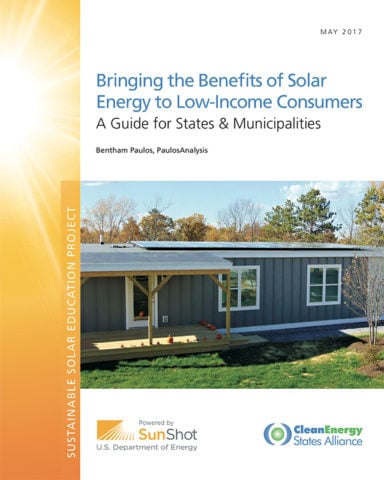Bringing the Benefits of Solar Energy to Low-Income Consumers
Bentham Paulos (PaulosAnalysis) for CESA
Despite increasing affordability of solar and solar-friendly policies and programs, some low-income households still face substantial obstacles to going solar: being renters and not homeowners, having low or no credit, or having little savings. Conversely, many policies that provide financial or energy assistance to the poor were not designed to access solar power. A new guide, written for CESA by Bentham Paulos of Paulos Analysis, concludes that barriers to adopting solar are not insurmountable.
This guide, “Bringing the Benefits of Solar Energy to Low-Income Consumers,” outlines the obstacles that low-income households face in accessing solar power and provides a detailed overview of strategies that policymakers and government agencies can use to encourage low-income solar adoption. Read the guide at the link to the right.
This report and webinar were produced through CESA’s Sustainable Solar Education Project, which provides information and educational resources to help states and municipalities ensure that distributed solar electricity remains consumer friendly and benefits low- and moderate-income households. This project is funded through the U.S. Department of Energy SunShot Initiative’s Solar Training and Education for Professionals program.
Associated Project(s):
Resource Details:
Date: May 15, 2017
Type: Report
Topic(s): Finance, Low- and Moderate-Income Clean Energy, Solar PV

